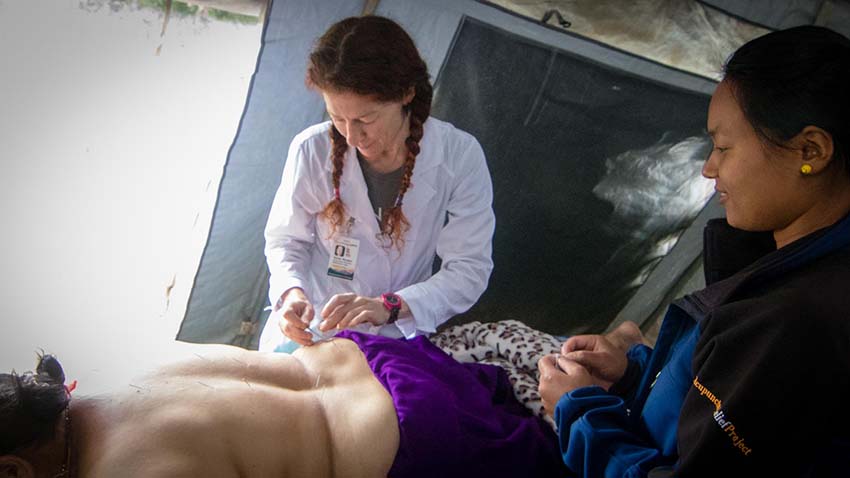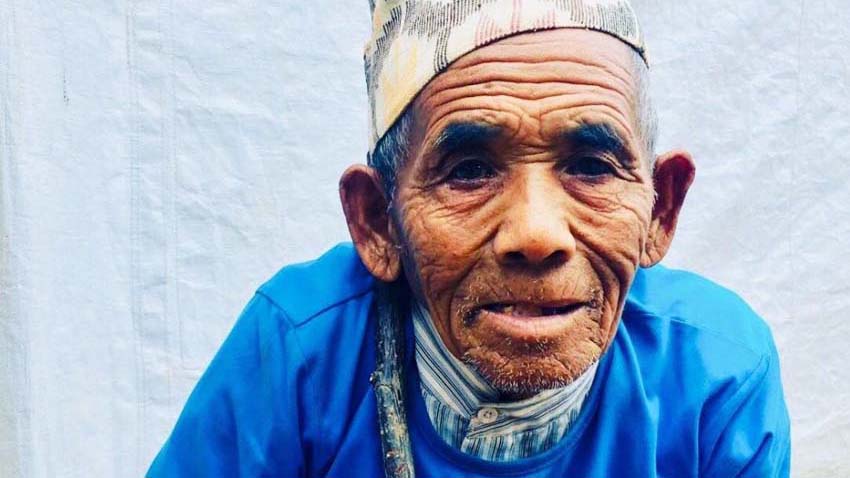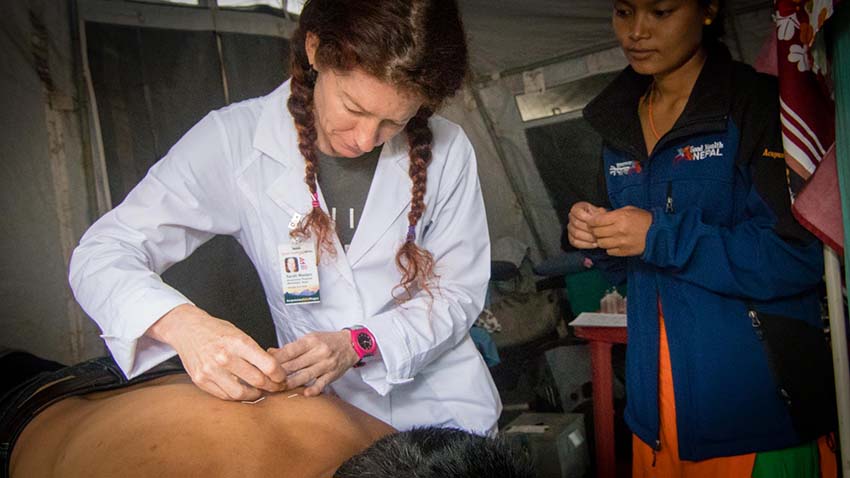
Yesterday, I saw an 80 year old patient whose oxygen saturation read 75. In America, anyone under 90% gets an immediate oxygen cannula in their nose. When I first encountered this woman in her village, about 2 & ½ miles away over hills and valleys, I tried checking her vitals. During that encounter, I assumed the machine was malfunctioning due to sunlight or lack of proper circulation because it was reading 67. In my Western ignorance, I assumed anyone with a 67 percent oxygen saturation would clearly be dead – as opposed to squatting on the roadside chatting with me, discussing walking miles to the clinic, and leisurely watching the rolling clouds flow over the gorgeous valley. However, on the following day, she stayed true to her promise and hiked the giant hill 2 &½ miles to our clinic seeking help with her breathing. Her blood pressure had dropped to 85/60 at this point, her biceps so tiny they barely filled the cuff. She kept repeating that she wasn’t sure about being in the clinic because she’s just going to die soon anyway. I gave her my typical response, “I understand. Maybe we can make this time easier for you.” I was able to stall her for two hours. First I gave acupuncture. Then, I put the Albuterol inhaler to her lips and pushed it twice because she didn’t have the strength to do it herself. She had walked the distance uphill to the clinic alone, like any typical badass Tamang 80 year old with advanced COPD would, of course!
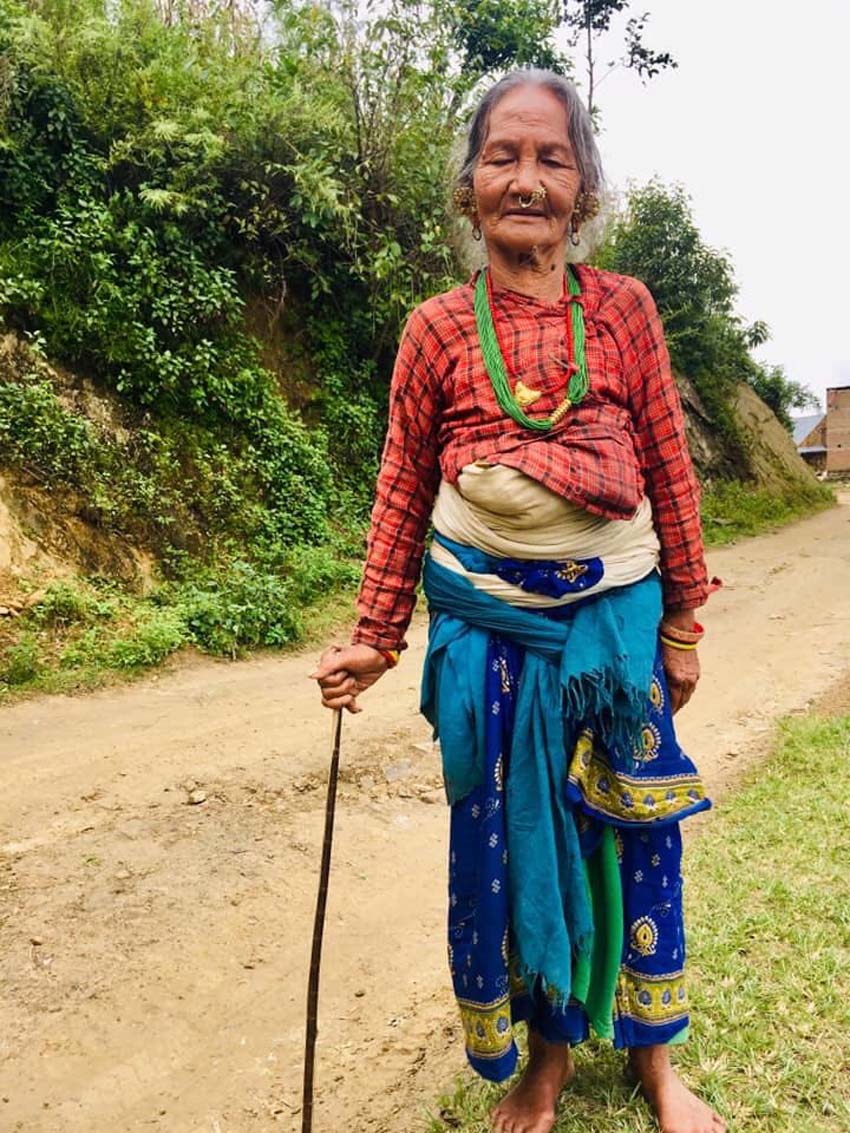
I told her to get her son to push the button at home and gave instructions for using the medication, unsure if it got through to her seemingly alert oxygen-deprived brain. Finally, the healthpost staff showed up, late, and gave her an Albuterol nebulizer. Considering her state, I assumed they would keep her there while I returned to my waiting tent full of a dozen patients and relatives. An hour later, I spotted her tiny figure out of the corner of my eye, making a run for it down the lane. I had my interpreter yell out, “Hey grandma!,” before we realized that she wasn’t suddenly pausing for a breath (why would she do that?), but was standing at the edge of the road urinating straight down onto the ground, clearly wearing nothing under her long colorful patterned skirt. “Hey grandma!,” we tried again. She turned around. I couldn’t bear to force the tough old mountain lady into anything she didn’t want. “You want to go home now, don’t you?” “Yes,” she replied, perhaps with a few comments about the importance of feeding the goats or playing with her grandchildren. “Okay I understand if you have to leave now but we might have some other medicine that will help. Do you feel better now?” “Yes, much better.” “Can you please come back on Friday?,” I ask, with a sigh as I sincerely respect her patient autonomy, as this relationship was built on the trust established by chatting her up on the roadside. “Yes,” she answers, as if the uphill hike with advanced COPD and oxygen saturation at 67 is a complete walk in the park. She gives me the little sideways headshake implying Nepali agreement, and takes off at a pace that would startle any 80 year old American.
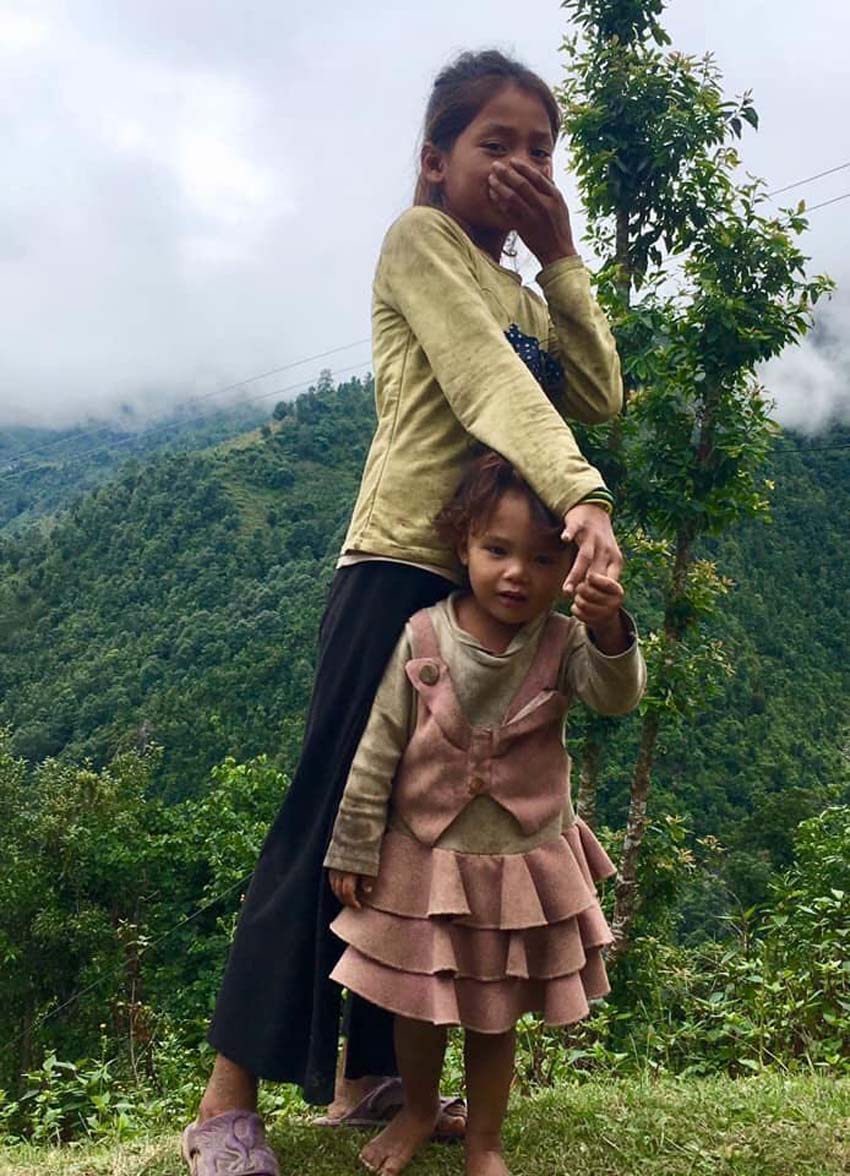
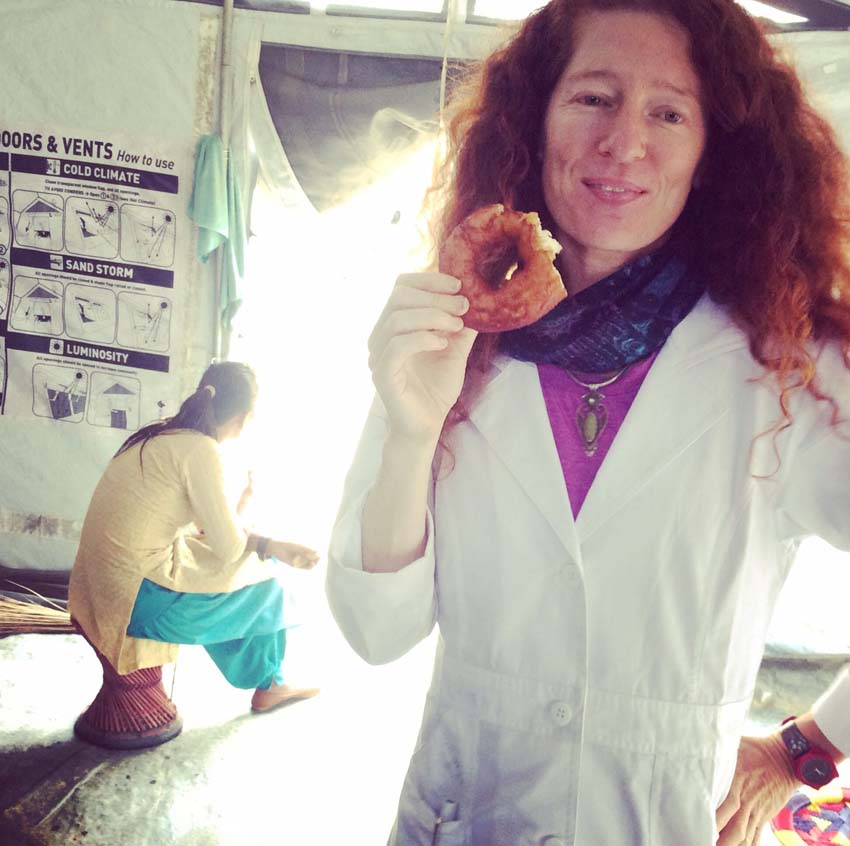
I’m beginning to catch on. This is how the Tamang women roll. They dress like gypsy carnival folk, in red and gold necklaces, brightly colored bangles for days on each wrist, two gold nose rings, and huge permanent golden plugs in each ear, proudly announcing their bride worth forever. They are tough badasses who climb slick rockface zig zag trails up mountainsides in flip flops with 100 pound baskets strapped to their heads. They smoke tobacco, drink homemade corn liquor from a tin shack, and regularly shout at people as if modern communication devices like telephones and email are inadequate because their voices will do just fine. They shout across properties, down into valleys, telling me the stories of their sick relatives so loudly in our tiny clinic tent that I could certainly hear the details a few hills away, if needed.
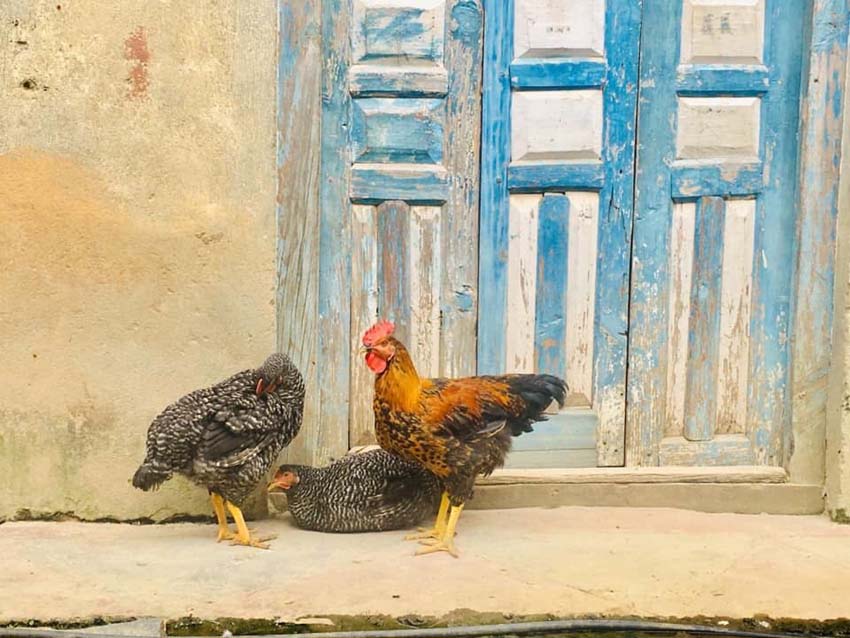
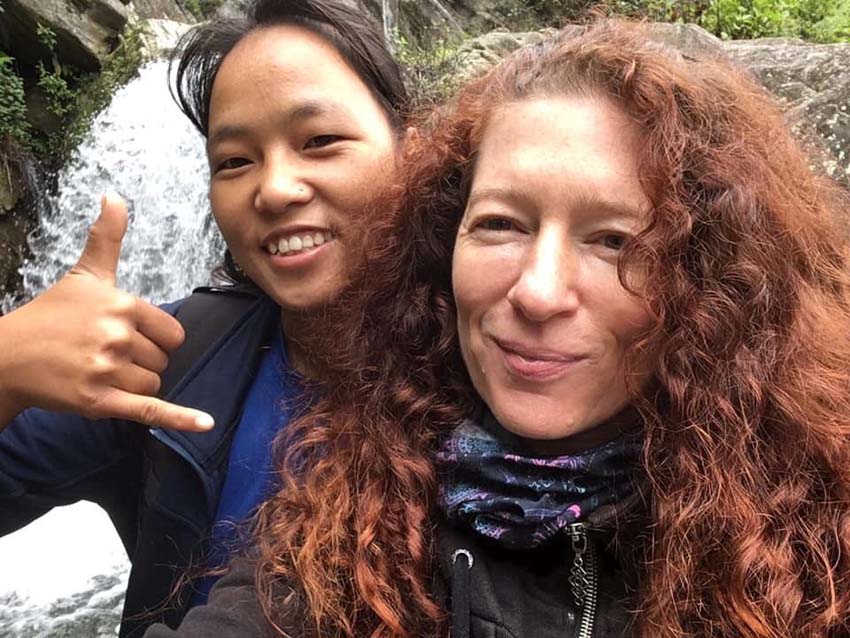
Just when I thought I was getting an understanding of Tamang women as our spry grandma walked home with no oxygen, I met another who surpassed her. Today, I followed my interpreter down a slick rockface mountainside to a distant village. She pointed out the row of corrugated tin houses in the distance from the road above. It looked far and a thousand feet down. I nodded, as one does in the company of the ridiculously tough. “No problem. Looks beautiful!,” I exclaimed. I quickly bounced and skidded down the mountain like a goat, following my nimble interpreter, excitedly. Our mission was to recruit the sick for our “nearby” clinic. An hour or so later, we came upon the gorgeous tiny village. The entrance was decorated with faded prayer flags in all directions. We ducked under an awning covered in grapes and skirted past a few lazy buffalo lounging in the shade. Emerging from the awning into the village, we walked down a fenced lane with gardens of squash, corn, cucumbers, and 15 foot ganja trees until we reached the lane of houses. Immediately, the kids came out to stare with inquisitive brown eyes and the ubiquitous giggle and squeaky “Hi!,” of Nepali children. We came upon a few elderly villagers and sat down on a rock wall to chat and inform them of our clinic. My interpreter began her rant, “We can treat pain, gastritis, breathing problems. We have acupuncture, Western medicine, herbs. You can come after the holiday. It’s not far.” I sat by smiling and offering to check vital signs. The old man next to me said he had a cough so I got his oxygen saturation and listened to his lungs. “Not bad. You have good lungs, probably just phlegm stuck in there. We have herbs that can help.” He nodded and we sat taking in the view and the nature around us, as more children lined up on the fence behind us to stare.
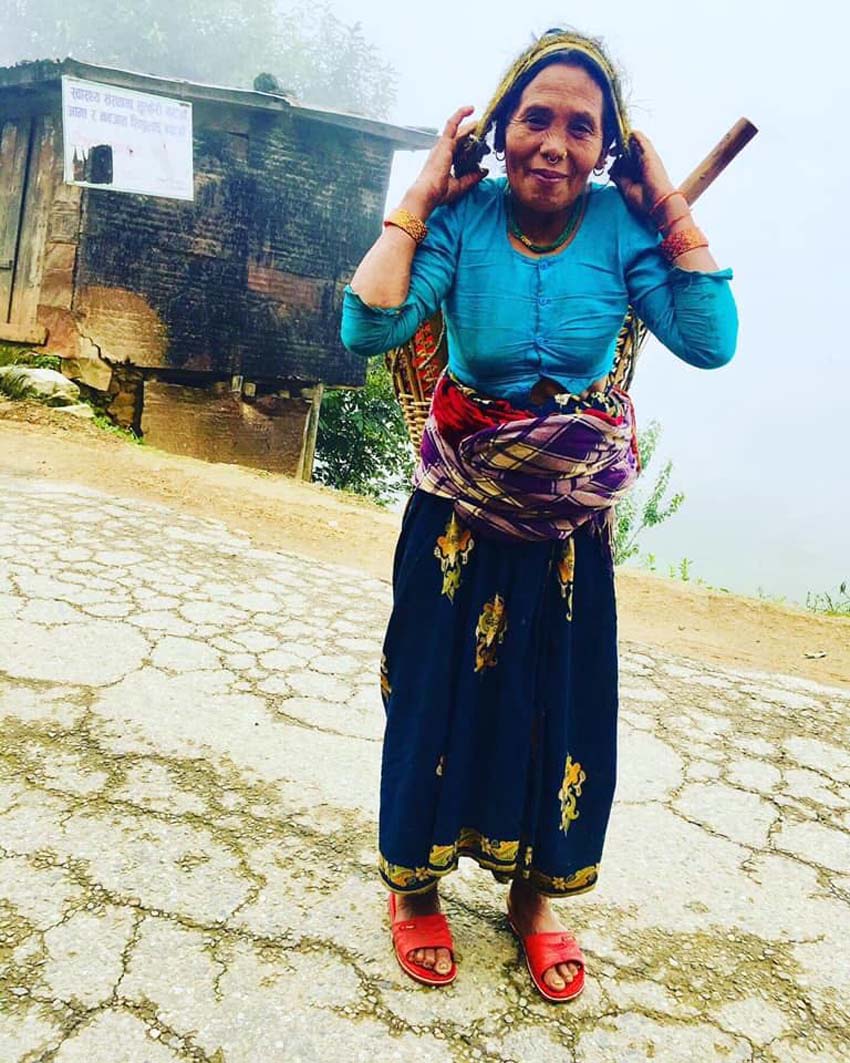
An elderly smug woman sat next to him on the edge of the garden, smiling calmly at the spectacle of my foriegn curly red hair and ghostly white skin. A dozen children lined up on the wooden fence behind me, giggling. One girl wore a formal red dress embroidered with flowers. It was brand new and purchased for the upcoming holiday. I said, “Wow! What a pretty dress. Can I take a picture?” Her mother held her hand and positioned her perfectly in the garden. She was posing, then coyly laughing and looking away. Then posing. I snapped some photos. The old woman sitting at the edge of the garden laughed, along with everyone else, because the child was so proud and shy in her new dress. Despite the situation being exotic, a cute child in a new dress is something everyone can relate to, across language barriers.
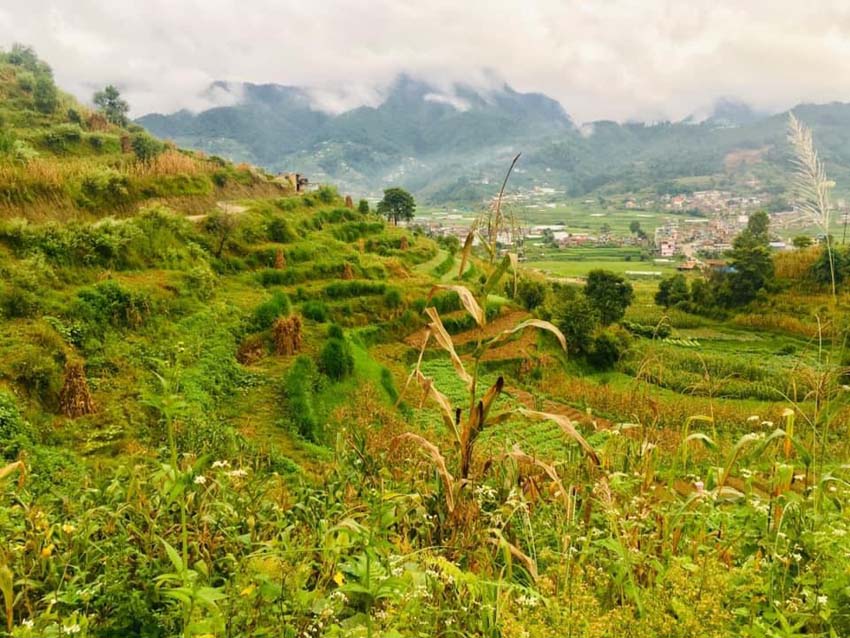
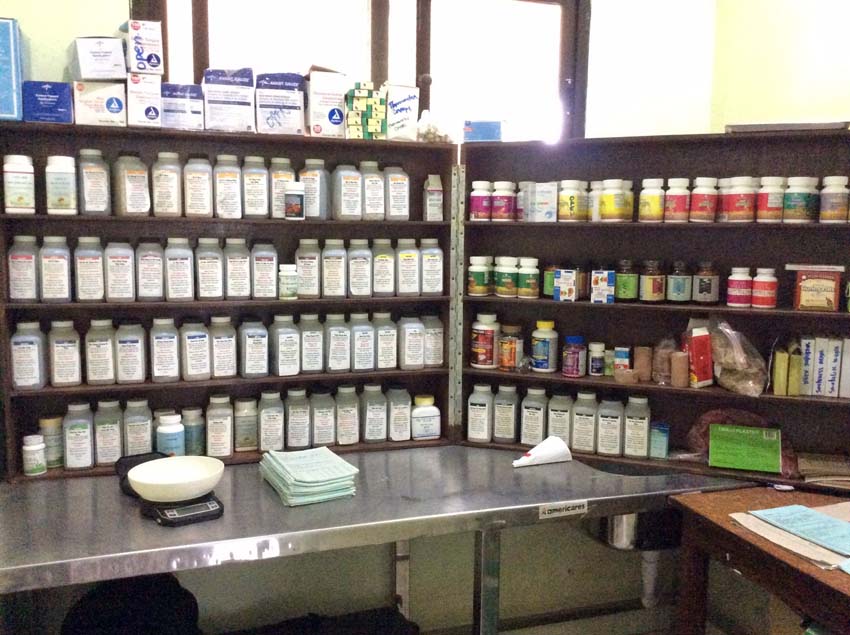
The houses were built in a row, supported with wood columns, dirt floors inside. I took some photos of the stable of goats, all staring out at me with their large sideways eyes. I remembered to tell my interpreter about wounds, recalling I had packed gloves and Neosporin. After seeing a half dozen medium sized open cuts covered in dirt in our clinic, I had realized the Nepali often don’t use soap to clean wounds, leaving them at high risk for infection. My interpreter delivered this message and the smug old lady nodded, saying nonchalantly, “I have a wound on my chest.” Sensing that an open chest wound tucked away somewhere under the layers of clothing that old Nepali women wear could be a sensitive topic to reveal to a complete stranger, I slowly asked some questions, peppering them in with my delight at the beauty of the view and the extensive gardens, the staring children, the wide-eyed goats. I asked the villagers to boil some water and find me some soap.
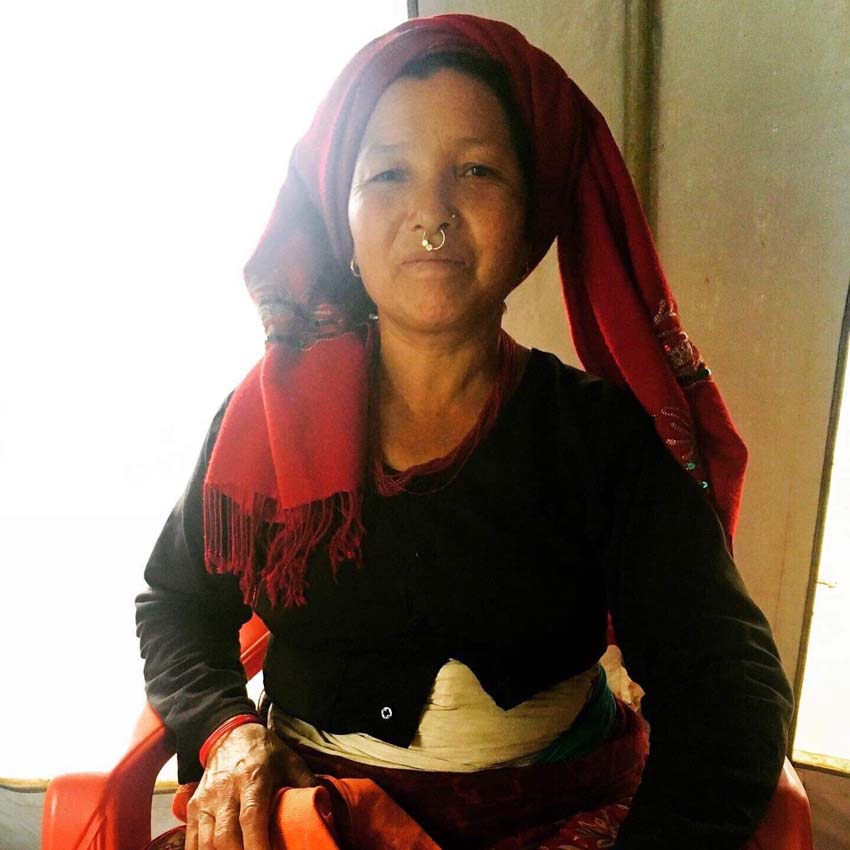
As we waited for the water, the woman claimed she had been bitten by an insect which had laid many eggs in her skin. The insects festered inside of her. They had left an open wound on her chest. Having traveled in South America many times, my mind quickly jumped to the possibility of exotic jungle insects that fly into people’s ears and lay eggs. My imagination stirred up scenarios of Nepali insects which bite, burrow, and breed colonies. My intrepid interpreter showed no signs of surprise. I asked, “What kind of insect? Did it have wings? Did they fly away?,” noticing no outer signs of insects, visually inspecting the cheerful old lady’s red plaid shirt and colorful patterned skirt. “Oh a Doctor got the insects out of me a while ago, but they left a big cut,” the old lady explained. Hearing this bizarre news, I returned to my neutral, “I understand,” as if I’d heard stories like this all my life. “Would it be okay if I looked at the cut? Maybe we can help you clean it,” I added. “Sure,” She replied, “I don’t want to scare you. It looks bad.” “I’m a Doctor. We see things like this all the time. Don’t worry,” I reassured her, my morbid curiosity growing.
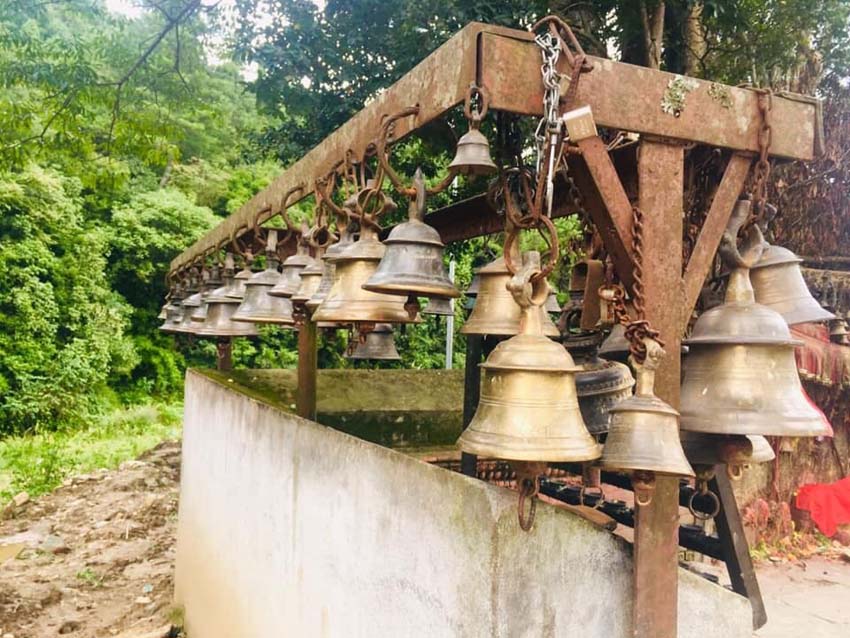
The old lady grabbed the tiny strings of her shirt and began opening it up right there in the garden as I tried to shew all the children away. As her shirt fell open, and she pulled down the lone pink napkin covering her wound, I saw the most intense festering wound of my life covering her entire left breast, directly over her beating heart. It was hard to peer into it due to the overwhelming stench of rotting flesh. I saw no insects. “Insects did this?,” I ask again. “What kind of insects?” My interpreter making a phone call to get the English translation of the mysterious culprit. I ask her if she ever washed it with soap. “No, I don’t do anything to it,” the old lady said. As my mind contemplated the likelihood of infection spreading to the lymph and heart, I struggled to recall images of Peruvian flesh eating diseases my friend had once told me drunken stories of in Iquitos. “Do you ever get fevers, chills, and sweats?,” I asked, remembering my recent patient with an infected leech bite leading to cellulitis. I had feared sepsis upon seeing the two inch wide red line up his thigh and his rising temperature. “Any lumps in your armpits or groin?,” I was stalling as I realistically had no idea how to clean this wound, it’s two inch deep cavernous rotting flesh wafting back at me. There were chunks of white, craters of brown as well as red, a long black hair growing inside, a few flies buzzing around. “Three months ago, the insects were inside, and the wound became large and swollen, so I poked it with a stick and lots of water came out. Now it looks like this,” the old lady said, reaching for another stick from the ground. Stick in hand, she pointed inside the wound at one spot. I nearly slapped the stick out of her hand. “No more sticks. Let me take a look first,” I said, pausing to send several texts to my supervisors on a phone which seemed to blink in and out of service in our remote location.
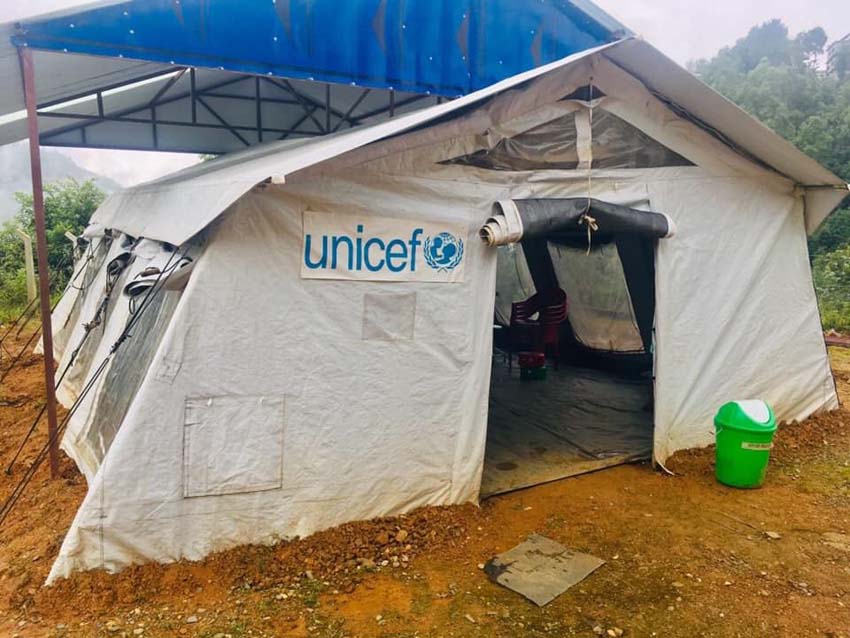
In these situations, it is best to slow down time, I reminded myself. There is no hurry. Although this was definitely the worst flesh wound I’ve ever seen in my pampered Western life, and the smell was overwhelming all of my senses, causing a permanent impression in my brain, I took some time to pause and look at the nearby flowers in the garden. “Your garden is really amazing,” I convincingly say, as if distracted by the beauty of the nature. Then, several breaths later, “I think we can help you. I’m talking to some Doctors. Are you in a lot of pain right now?,” I ask, noting that the woman had given zero indication of pain despite harboring a giant oozing chest wound while making light conversation. The old woman nodded, as if excruciating pain was just an ordinary part of life, nothing to talk about. I ask again, looking into her eyes, “Douksha?,” I say the Nepali word for pain, trying to get a gauge of how severe the pain was or if she was miraculously on medication already. She says, “Yes, pain,” bobbing her head left and right as if to say life is full of pain, what can you do?, shrugging.
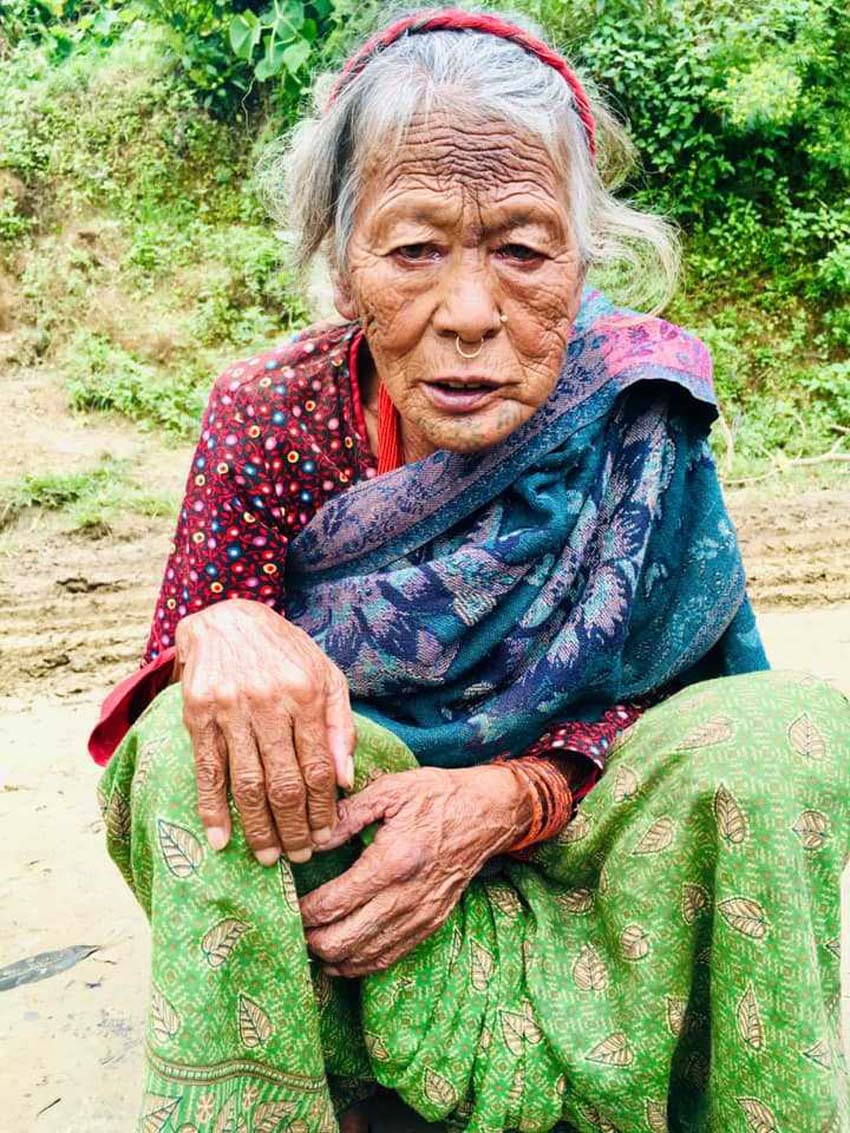
“A Doctor gave me medicine six months ago. I took it for three or four months but I ran out about three months ago,” she explains. I wonder if she ran out of medicine because the doctors assumed she would die in three months. She is very much alive, eyes sparkling, giggling at the grandchildren, expressing a vague sense of what must be mind-numbingly agonizing pain, the mysterious insects still nowhere to be seen. After applying Neosporin around the edge of the giant crater, I decide to inspect her chest with my gloved hands. Opening her shirt, I palpate a red bulging lump in the subaxila. This is when the shock wore off and a light bulb went off over my head – this was stage four advanced breast cancer, I realized. I recalled my TCM Oncology professor prefacing a slide with, “If you cannot look at blood or violent movies, look away.” I’m one of those people. I duck my head at every movie carnage. I cannot watch blood poor out of decapitated heads in cheesy horror movies, no matter the comedic effect. I wince at the mention of violence. Now I’m glad I accidentally looked up before the slide was gone, as I vaguely recognized this picture in my mind’s eye. “Maggots!” my interpreter finally says, as the distant translation arrives. “Twenty-five maggots did this,” she says frankly. As my ridiculously spoiled Western mind struggled to comprehend what was happening, it dawned on me that this woman had terminal advanced breast cancer, was completely unaware of it, as she was illiterate and uneducated, and logically believed that the maggots which lived inside and cleaned her festering wound were the source of her troubles.
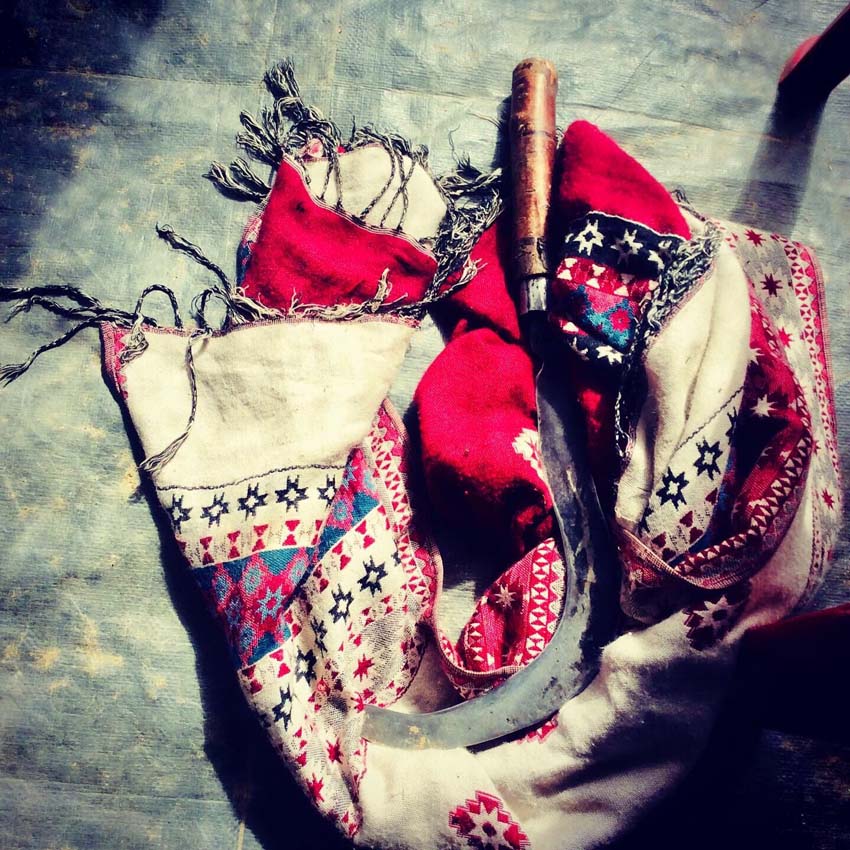
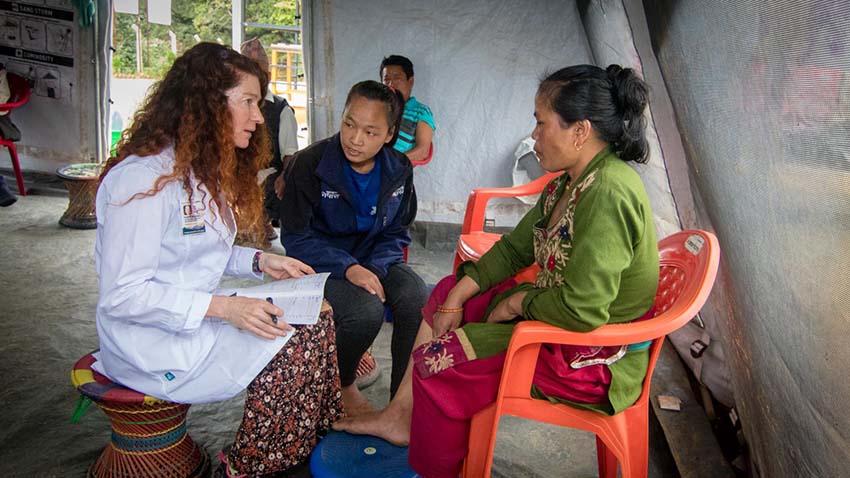
I struggle to explain this via text to my supervisor on my inoperative telephone, as I realized I’d run out of minutes. I tend to show shock by pausing and making light conversation. “I think we can help you clean this and get you some painkillers,” I said. “Would you like that?” “I don’t want to go to Palung or Kathmandu,” the old lady stated. “I understand. You’re village is so beautiful. I wouldn’t want to leave either. Do you think you could just come to our clinic in Tistung? Maybe we can help you there. We can call you a tuk tuk. I can pay for it. Don’t worry,” I say, thinking surely someone somewhere could get this lady some morphine. “Okay,” she replied, springing to her feet with the agility of a teenager, walking off to her house to gather some things. I found the old lady exiting an ancient house with a dirt floor, ambling on back to the garden. Standing under a marijuana plant three times her height, she lit up a cigarette, took off her flip flops, and started walking. The hill between us and the tuk tuk would be called a mountain in most parts of the world. I walked behind her, noticing that her pace was hardly slowed by the enormous open wound, roughly 4 by 6 inches and several inches deep, pulsing and oozing over her heart. She climbed barefoot in quick zigs and zags, summiting the hill in no time. The green tuk tuk was waiting, so we climbed in – my interpreter to one side and me to the other, with grandma in the middle. I grabbed her shoulders and waist as she gripped my thigh, attempting to stabilize her body during the bumpy ride. It was no use as the roads are chock full of potholes and the drivers typically too fast.
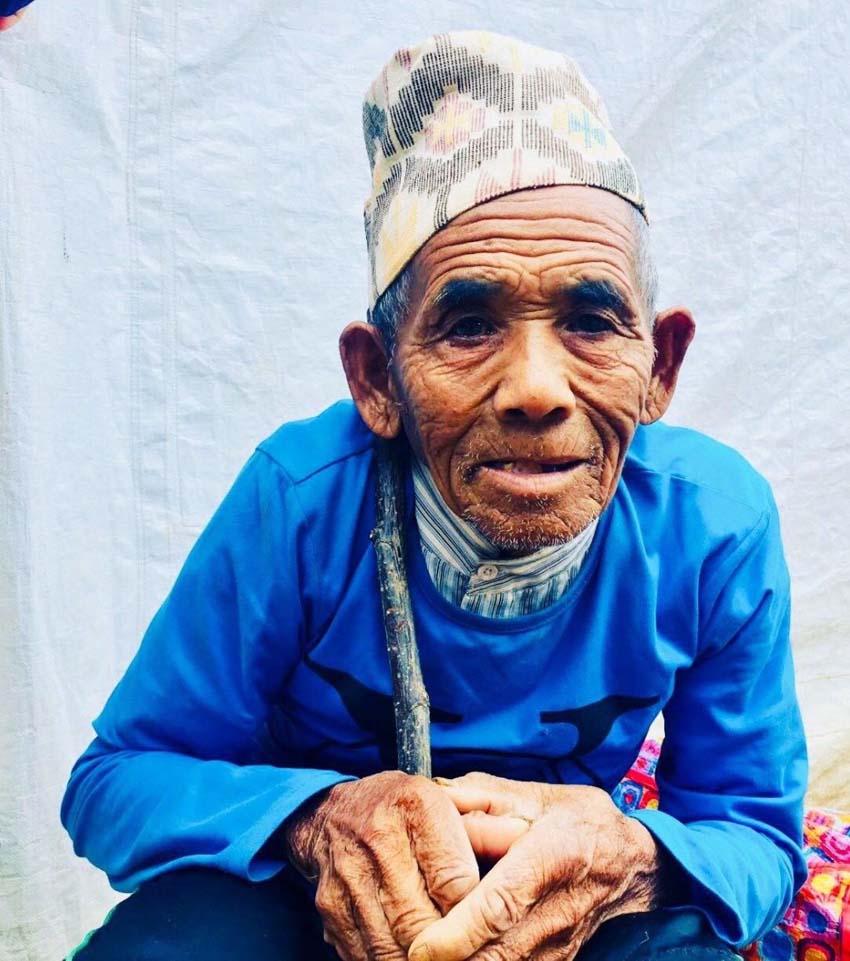
For a moment, as we climb the bumpy hill, I allowed myself to sense the enormity of her pain. In an instant, it washed over me as I felt my eyes nearly drip until I snapped back to my own body, thinking such empathy is an impractical self absorbent wallowing. It was simply not the time for emotion. If I stopped to feel the pain of each patient this week – the 80 year old with oxygen saturation at 67%, the 13 year old who has had a runny nose with sneezing for an entire year, the screaming infants with oozing ear infections, the woman whose head was swollen from getting beaten with a stick, the villagers who have carried heavy weight on their backs for decades, and this grandma with advanced stage four breast cancer manifesting in what I now know is called a malodorous fungated wound, I would not be functional as a Doctor. Human suffering is vast. If I can make a tiny dent in the enormity of suffering, I have done great work. I delivered grandma to the clinic where the Doctors found funding for her palliative care.
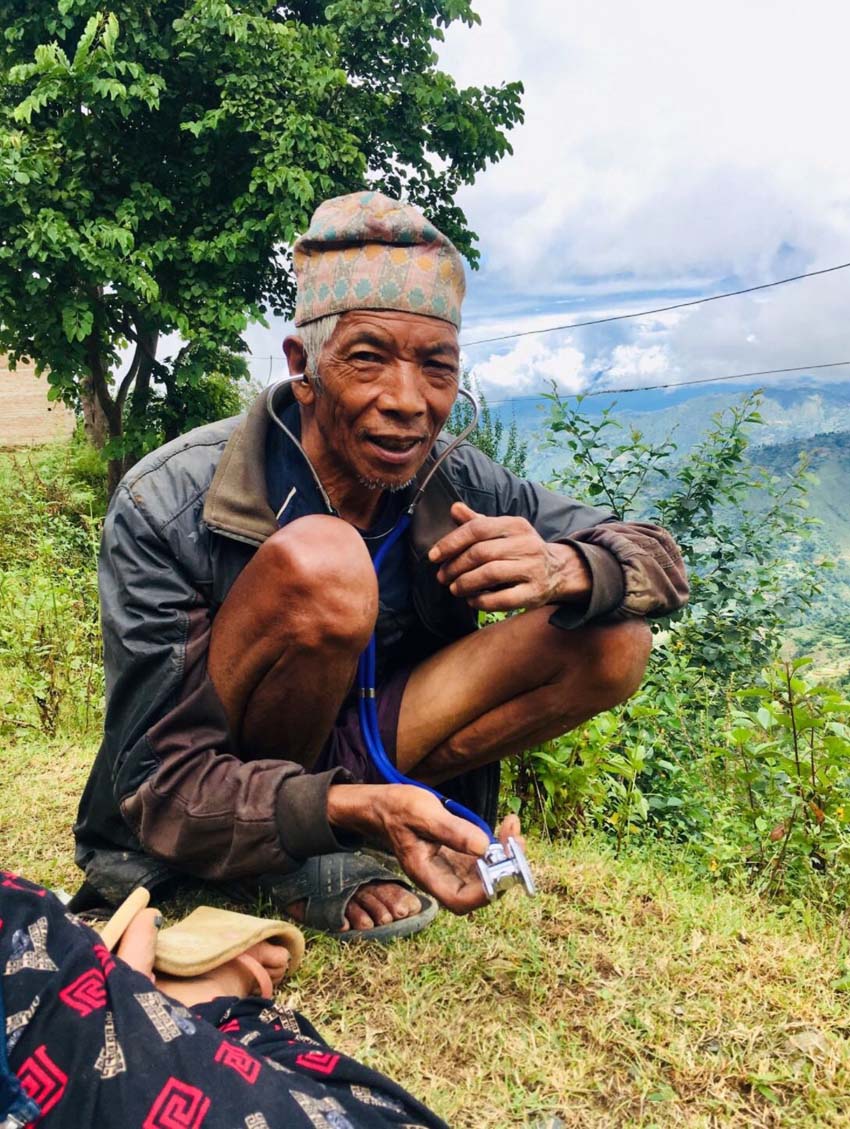
I hope she will be able to return to her beautiful garden to die in the company of friends. I hope that, this time, she will get enough palliative medicine and painkillers to alleviate her suffering until her soul finally rises and her withered body returns to ash, to garden, to compost, to green growing vines. Namaste --- Sarah Maiden
